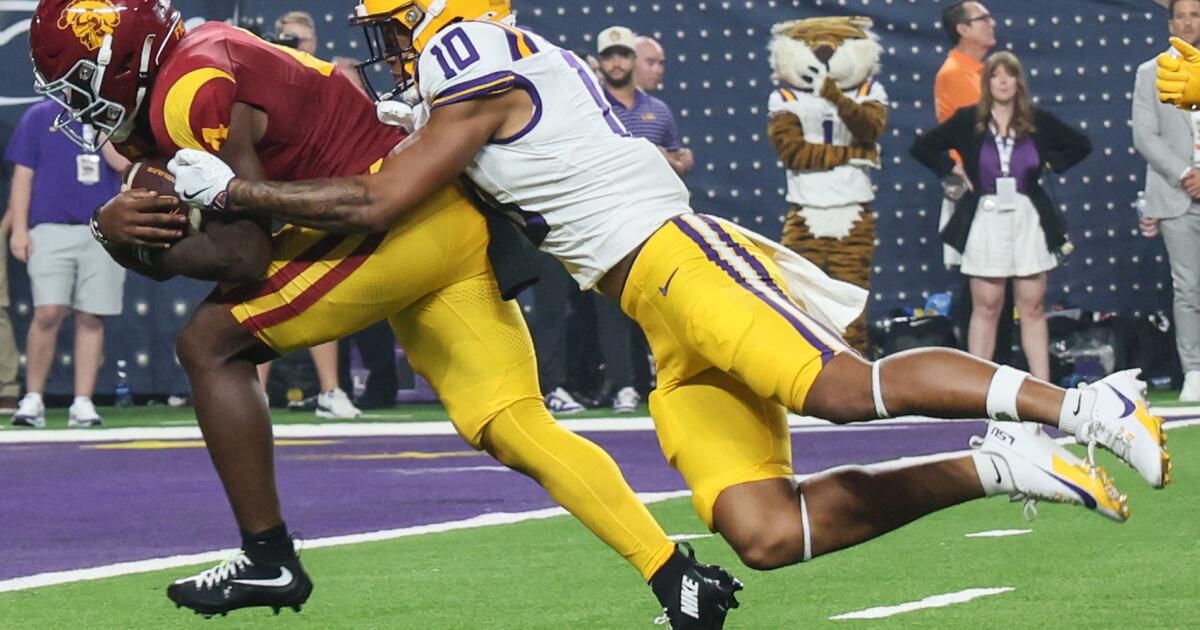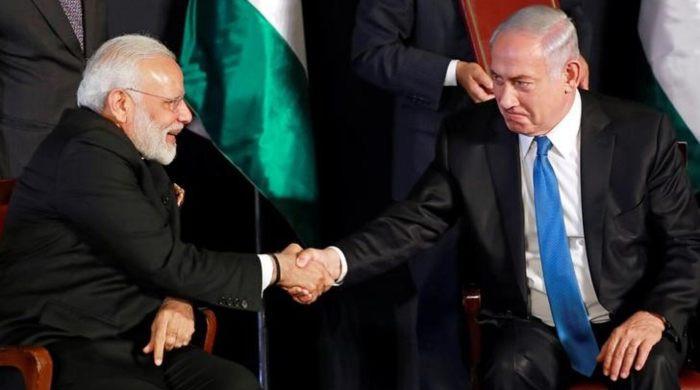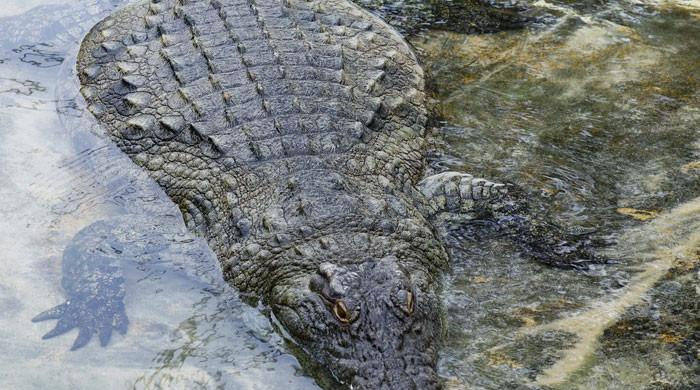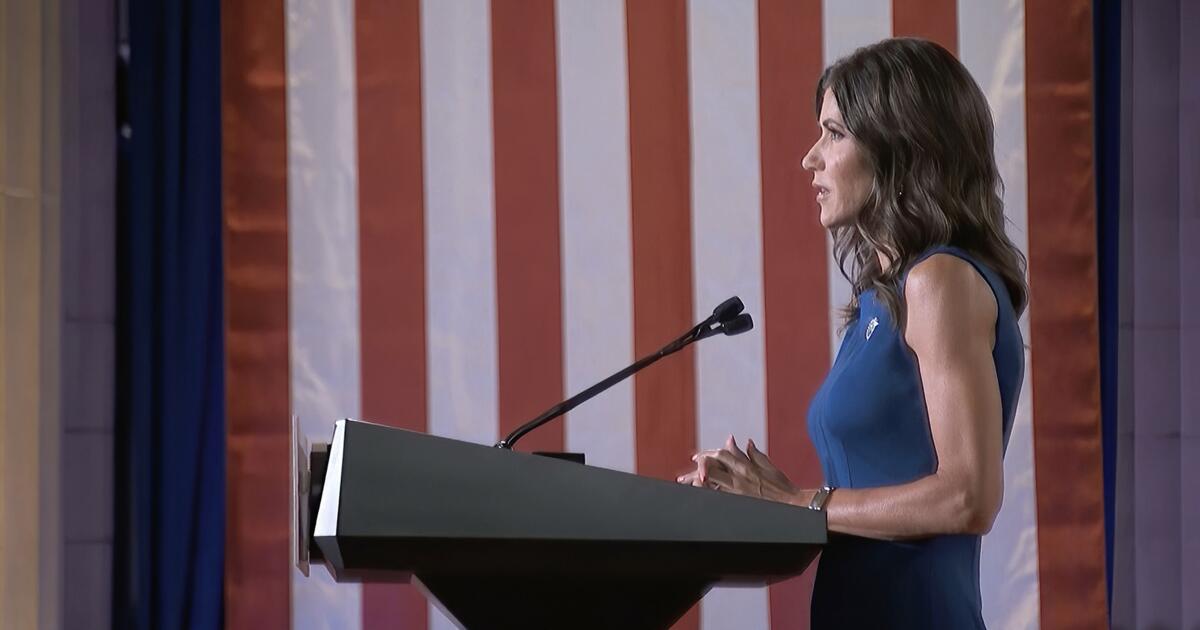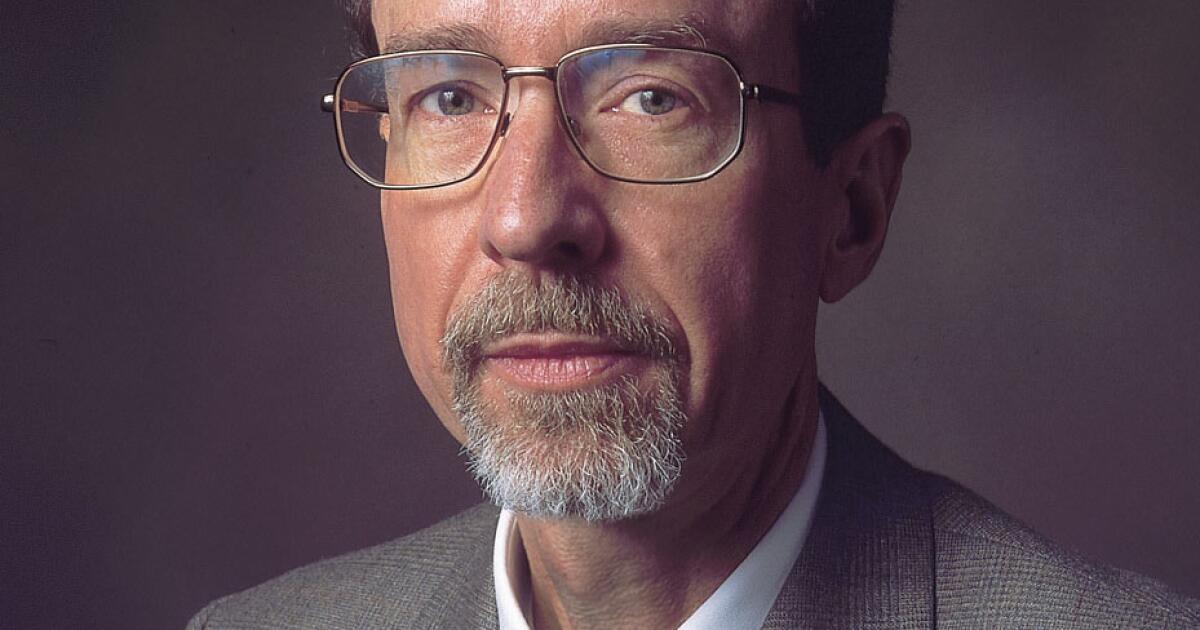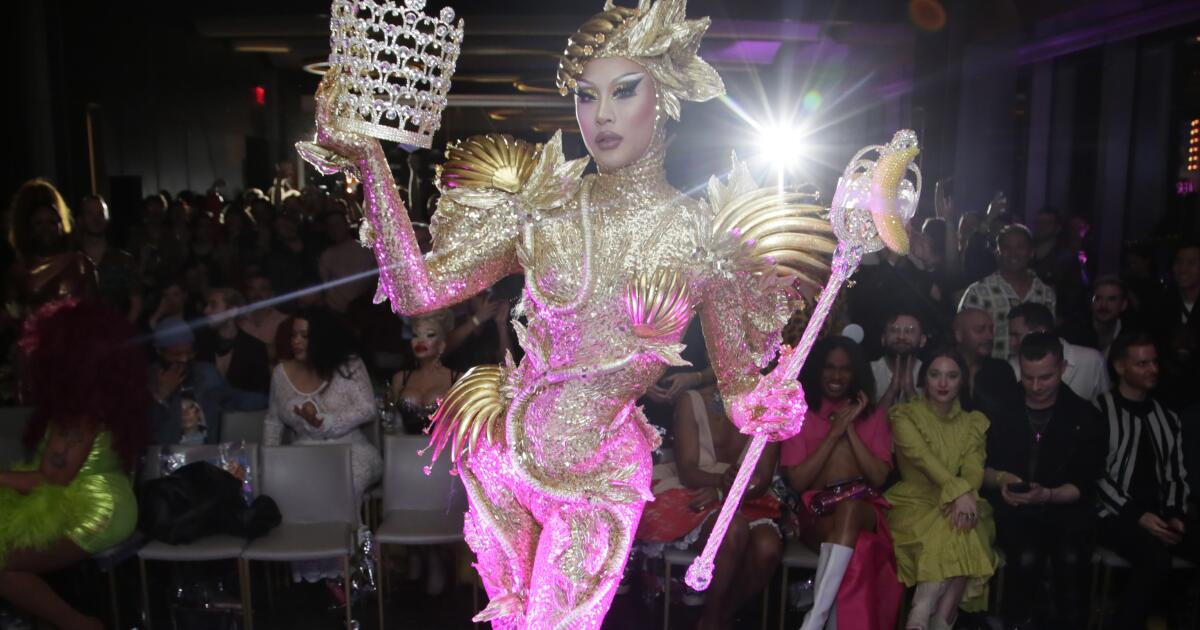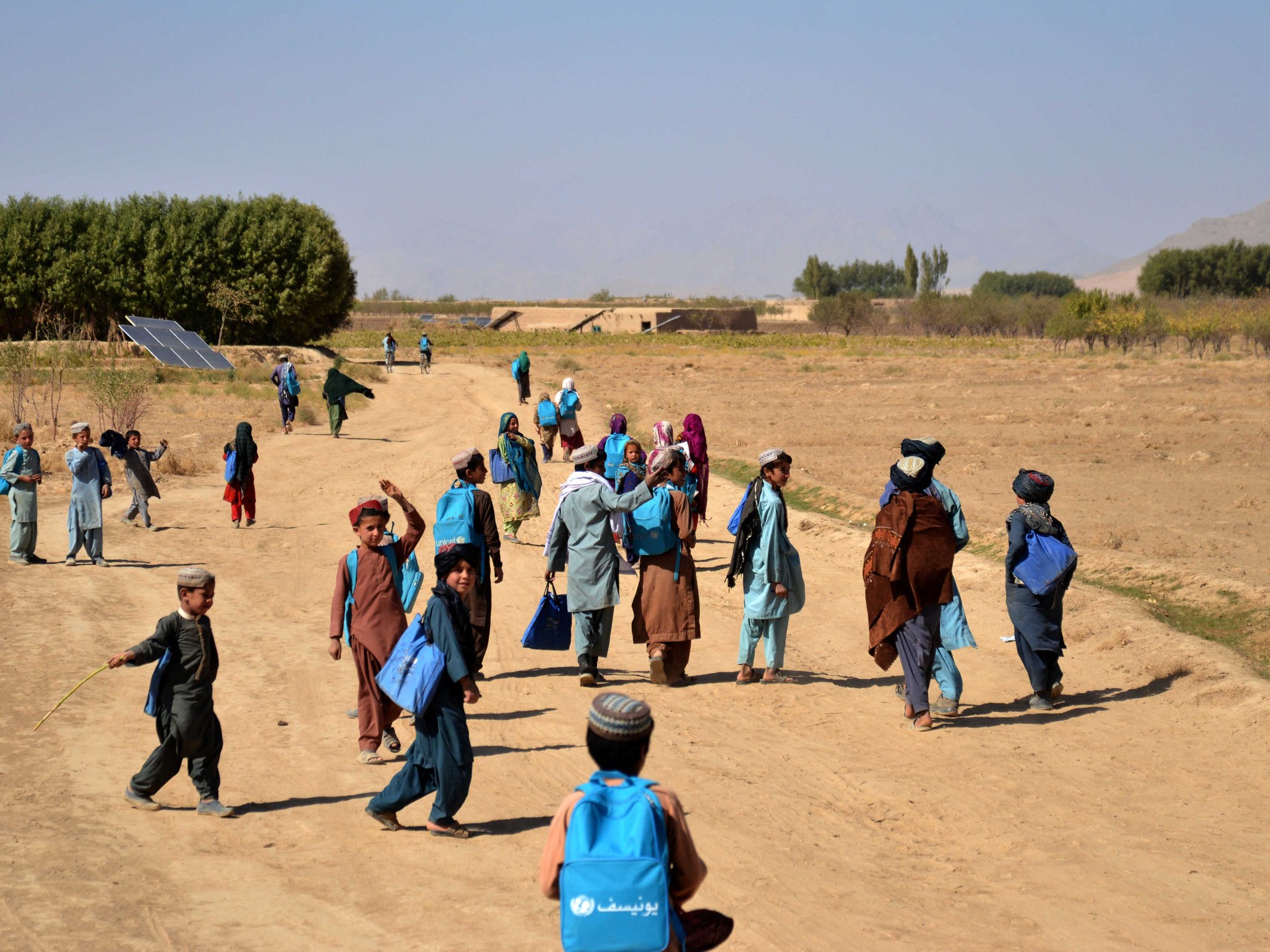On Sunday, the Walt Disney Co. pulled ESPN and other DirecTV channels minutes before the start of a major USC football game and during the U.S. Open tennis tournament, angering sports fans who found themselves in the middle of a contentious contract dispute.
More than 10 million DirecTV and U-Verse video customers were caught up in the dispute when DirecTV lost its rights to carry Disney programming, including Disney-owned ABC television stations.
The two companies had been negotiating at DirecTV's El Segundo headquarters for weeks but failed to reach an agreement on a new licensing deal before the Sept. 1 deadline.
The blackout is the latest sign of the strain facing traditional television companies as customers migrate to streaming.
“Consumers are going to blame someone, but in reality it took intervention from both companies to get to this position,” Emarketer senior analyst Ross Benes said recently.
Here's what you need to know about the dispute:
Why does this happen?
Pay-TV providers including DirecTV have absorbed steep increases in programming licensing fees as their customer base has eroded due to the abandonment of cable TV services. Television distributors are struggling to make money from their video channel businesses and fear that big fee increases will only drive away more customers.
The cost of maintaining broadcast networks (ABC, CBS, Fox and NBC) and sports channels, including ESPN, has skyrocketed as programmers seek to pass on the increases they agreed to pay to sports leagues and conferences. Increasingly, the shrinking pool of traditional pay-TV subscribers has been asked to shoulder these increases.
DirecTV asked Disney for flexibility in offering smaller, more thematic packages. Disney has long required pay-TV companies to carry its cable channels, including ESPN, in most of their customers’ homes. ESPN is the most expensive basic cable channel, costing distributors nearly $10 a month for each subscriber household.
This has led to one of the thorniest issues in the current dispute: Disney’s requirements for “minimum penetration” of its channels, including ESPN. Disney requires that ESPN be carried to about 82% of DirecTV subscribers.
Over the years, the practice of minimum penetration has allowed Disney to charge huge fees, even from subscribers who don't watch much sports. Pay-TV companies must pay fines if they don't meet the minimum threshold.
DirecTV argues that since fewer than 40% of its customers regularly watch Disney sports content, it is unfair to burden those subscribers with the high costs of sports programming. Disney counters that it invests heavily in high-quality programming and has offered its channels, including ESPN, to DirecTV at market rates.
DirecTV is trying to relax those penetration rates and the fees you have to pay when you don't reach the threshold.
DirecTV satellite dishes in Culver City.
(Allen J. Schaben/Los Angeles Times)
The satellite provider also notes that only 10% of its customer base regularly tunes into children's programming, but more than 80% of its subscribers pay for those channels.
Additionally, DirecTV and other distributors have also been irked by efforts by Disney and other entertainment giants to create their own streaming services, which compete with their longtime partners, the pay-TV companies. Disney, Warner Bros. Discovery and Fox Corp. teamed up this year to create a sports streaming service, Venu, as an alternative to the likes of DirecTV. The effort was challenged in court, and a federal judge in New York granted a preliminary injunction temporarily blocking Venu’s launch.
How long will this dispute last?
That's not clear.
A year ago, a similar dispute between Disney and Charter Communications, which operates the Spectrum service, lasted 12 days.
Following that contentious battle, Charter dropped some smaller Disney-owned channels, including Freeform, and gained the right to offer Disney streaming services, including Disney+, as part of its package. However, the discontinuation proved costly for Charter, which lost more subscribers than it expected.
The blackout ended just as ESPN's first “Monday Night Football” game of the season was getting underway.
Typically, a dispute ends when both parties feel the economic pain.
“There is always a lot at stake,” Benes said. “But if [DirecTV doesn’t] If we don't have ESPN channels for the next three months, that will cause even more people to drop cable. It could be another nail in the coffin.”
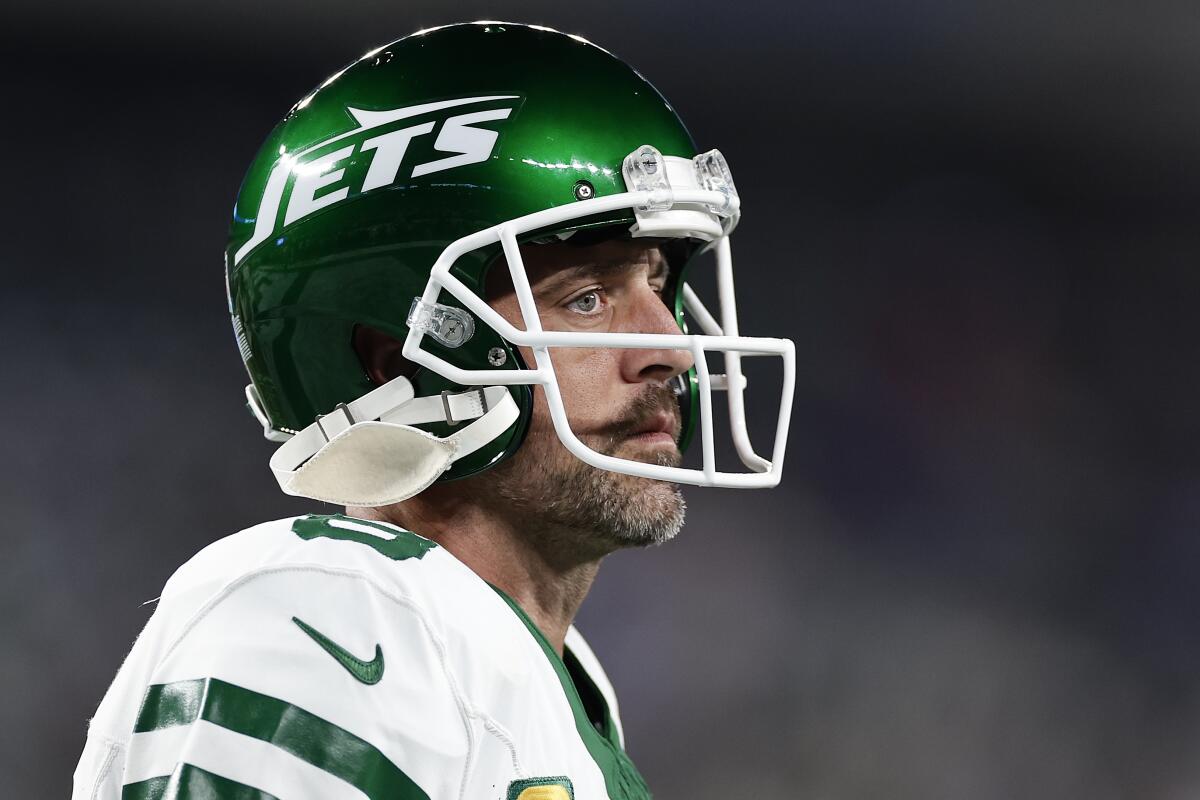
New York Jets quarterback Aaron Rodgers is expected to return for a “Monday Night Football” game on Sept. 9 after tearing his left Achilles tendon in the New York Jets’ season opener last year.
(Adam Hunger/Associated Press)
What programs might be affected?
Customers who live in cities where a Disney-owned ABC television station operates, including KABC-TV Channel 7 in Los Angeles, will see an interruption to some of their favorite shows, such as “Good Morning America,” “Jeopardy” and local newscasts. Disney owns eight ABC stations, including those in San Francisco, Fresno, New York, Chicago, Houston, Philadelphia and Raleigh-Durham.
For now, much of the pain is being felt by sports fans. College football fans are still upset about missing the USC-Louisiana State University clash on Sunday, in which the 23rd-ranked Trojans pulled off a thrilling last-minute win over the 13th-ranked Tigers.
ESPN has the rights to the US Open tennis tournament, which is in the final rounds with the men's and women's quarterfinals and semifinals. The championships will be played this weekend.
College football is also very popular on ABC and ESPN.
“Monday Night Football” kicks off on ESPN and ABC on Monday, with a featured matchup between the New York Jets and San Francisco 49ers, two markets served by ABC-owned stations. The game is scheduled to feature the return of Jets quarterback Aaron Rodgers, who suffered a season-ending injury in last year's “MNF” opener.

“World News Tonight with David Muir” is among ABC’s programs.
(Heidi Gutman / ABC News)
ABC will also air the first presidential debate between Vice President Kamala Harris and former President Trump on Sept. 10. However, other networks will carry ABC's broadcast of the debate.
The Disney-owned network will also air the 76th Primetime Emmy Awards on Sept. 15, meaning millions of customers will be unable to watch the fan-fest hosted by father-son comedy duo Eugene and Dan Levy if the dispute drags on for two weeks.
Is there any workaround?
Viewers can access ABC signals through a digital antenna, but that won't help viewers of Disney's cable channels, ESPN, ESPN2, Disney Channel, FX or National Geographic.
Competing services offer Disney cable channels, including YouTube TV, Sling TV, Hulu + Live TV (owned by Disney), FuboTV, and traditional cable and satellite providers including Charter Spectrum, Cox Communications, Comcast, and Dish Networks.
Can I get a refund?
Yes, sort of. DirecTV is offering customers $20 credits to offset the outage. Customers must request the credit on an upcoming bill.

